UECC's EU ETS Solution Brings Clarity to Emission Costs
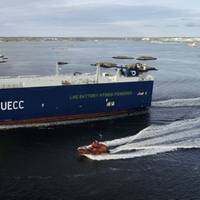
Cargo owners seeking to determine their Scope 3 emission liabilities from the logistics chain must contend with multiple calculation methods from different shipping lines that will affect their costs exposure to the EU ETS for shipping. To resolve this conundrum for its clients, pure car and truck carrier (PCTC) owner and operator UECC has adopted a standardised methodology based on an existing and trusted industry framework.The EU Emissions Trading System (EU ETS), set to be phased in for shipping from January 1…
Deep-sea Mining: A New Gold Rush or Environmental Disaster?
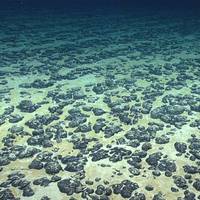
In the depths of the Pacific Ocean between Mexico and Hawaii, trillions of potato-shaped rocks are scattered across the seabed - containing minerals such as nickel, cobalt and manganese vital for new green technologies in the global energy transition.In this ocean region - the Clarion-Clipperton Zone (CCZ) - an abundance of the rocks, known as polymetallic nodules, is increasingly fuelling debate about the mining of metals needed to produce technology such as batteries for electric…
Managing Offshore Oil & Gas Through Energy Transition
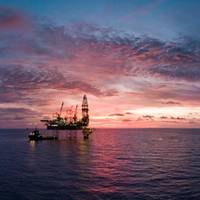
Scientists warn that climate change is the greatest peril that humankind has ever faced. Yet oil and gas exploration is set to clock the highest growth for more than a decade this year and next. Protesters cause disruption but, for the moment, hydrocarbon energy underpins life as we know it“Offshore oil and gas production probably matters now more than ever,” said Audun Martinsen. The Rystad Energy Partner and Head of Energy Research told Maritime Reporter & Engineering News.“It…
Petrobras Orders 10th FPSO for Búzios Field
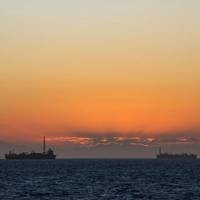
Brazilian oil and gas company Petrobras has ordered a floating, production, storage, and offloading (FPSO) vessel from Singapore's Sembcorp Marine Rigs & Floaters.The FPSO, named P-82, will be deployed at the giant Búzios oil field, in the Santos Basin pre-salt area, offshore Brazil.Worth US$3.05 billion (S$4.25 billion) the P-82 is the largest contract secured by Sembcorp Marine from PetrobrasThe P-82 will have the capacity to produce up to 225 thousand barrels of oil per day, process up to 12 million m³of gas per day, and store more than 1.6 million barrels.
Ships Get Older and Slower as Emissions Rules Bite
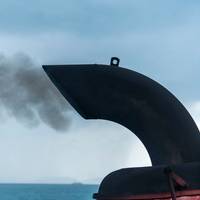
If shipping is the beating heart of global trade, its pulse is about to get slower. Faced with uncertainty about which fuels to use in the long term to cut greenhouse gas emissions, many shipping firms are sticking with aging fleets, but older vessels may soon have to start sailing slower to comply with new environmental rules.From next year, the International Maritime Organization (IMO) requires all ships to calculate their annual carbon intensity based on a vessel's emissions…
Collaboration Crucial for Decarbonization -MSC CEO
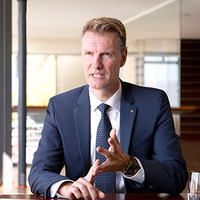
The CEO of container shipping giant MSC highlighted the importance of working together to achieve net decarbonization in a digital keynote speech at DNV’s ‘Fuel of the Future Conference’ on January 11, as part of the annual Nor-Shipping convention.In his speech, Soren Toft explained MSC’s views on the status of decarbonization in the container shipping sector, summarized how the company is approaching this challenge and commented on how everyone must move forward together in collaboration to tackle climate change.As shipping volumes have grown over the years…
EU Pushes for Tougher Standards to Cut Shipping Emissions
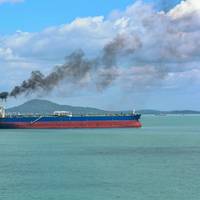
The European Union will push for tougher standards to cut the CO2 emissions intensity of ships at a meeting of the United Nations' maritime agency next week, a senior official said on Thursday.The International Maritime Organization (IMO) will next week discuss measures to steer shipping towards its pledge to halve shipping's greenhouse gas emissions by 2050, from 2008 levels.Among them are standards requiring ships to reduce their CO2 intensity. An IMO working group has proposed an 11% carbon intensity cut by 2026…
Why the EU’s Proposed Carbon Border Levy is an Important Test
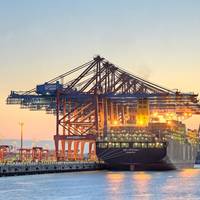
In the more than two decades since the Kyoto Protocol was adopted, national policies on climate change have had dangerously and disappointingly little effect on global emissions.Within the current economic system, perhaps the most ambitious attempt to reduce emissions has been the EU’s emissions trading system (or ETS). In operation since 2005, the ETS covers more than 11,000 heavy-energy-using power stations, factories and airlines, representing around 40% of the EU’s greenhouse gas emissions.
US Maritime Industry Praises Biden's 'Buy American' Order
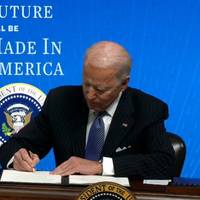
President Joe Biden on Monday signed an executive order aiming to use government spending to strengthen domestic manufacturing and create markets for new technologies, in a move widely praised by America's maritime industry.The executive order, titled Strengthening "Buy American" Provisions, Ensuring Future of America is Made in America by All of America’s Workers", calls for increasing the amount of U.S. content that must be in a product for it to be considered made in America under existing "Buy American" requirements.
Future Propulsion & Setting the Course to Low-Carbon Shipping
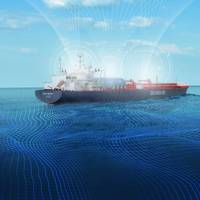
The pace at which the maritime industry transitions to low- and zero-carbon fuels will have the single biggest impact on its global carbon footprint, more than predictable shifts in commodity demand, advances in ship technology and operating practices, or new designs.That is a key finding of a comprehensive new report, Setting the Course to Low-Carbon Shipping, from the American Bureau of ShippingThe report looks at the decarbonization of shipping via two distinct scenarios: a ‘standard’ scenario…
Offshore Energy Outlook for 2020
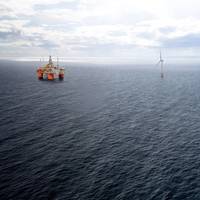
The “new normal” is a phrase tossed around often in offshore energy circles today as those servicing and operating in the sector grapple with the harsh realities of the prolonged industry downturn. Operators, service companies and equipment suppliers have been forced to adjust to oil selling at prices well below the $100+ per barrel mark seen in years past. As of this writing, Brent oil was hovering around $62 per barrel, and analysts expect prices will remain in this range for some time into the future.On top of this…
Setting the Course for Low Carbon Shipping
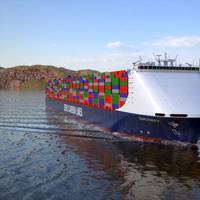
In a collective call to action for the decarbonization of shipping last year, 34 signatory CEOs from the industry made clear that efforts to significantly lower the carbon footprint of shipping presented “biggest technology challenge in the past 100 years”.This statement was not an exaggeration. In fact, the transition to a low-carbon future will take more than an unprecedented commitment to the research and development that traditionally underpins technological advance. Finding complex solutions that are at once commercially viable…
IMO 2020: Countdown to Cutting SOx Emissions
International Maritime Organization (IMO) has been preparing ahead of the implementation date. From 1 January 2020, under IMO's MARPOL convention for the prevention of pollution from ships.Accordingly, the sulfur content of fuel oil used by ships operating outside designated emission control areas shall not exceed 0.50% - representing an 80% cut from the current 3.50% limit. New requirements for ships to cut sulfur oxide emissions enter into effect on 1 January 2020, marking a sea change in fuel used by ships, globally, which will significantly reduce air pollution from ships with positive benefits for human health and the environment.At a roundtable industry meeting hosted by IMO at its London Headquarters (21 June)…
IEA to Push for Offshore Wind Energy
The International Energy Agency (IEA) held a high-level workshop on the outlook for offshore wind energy yesterday (May 13), bringing together 80 senior representatives from government, the private sector, research groups, academia and international organisations.Participants joined from countries around the world, including many from Europe, the United States, Japan and China, said a press release from the Paris-based autonomous intergovernmental organization which works to ensure reliable, affordable and clean energy.Altogether, the countries represented at the workshop account for 97% of current and planned offshore wind development.Technological improvements for offshore wind are improving performance and lowering the costs of the electricity it produces…
UK Launches Maritime 2050 Strategy
Britain’s marine industry launched of Maritime 2050, the UK Government’s first ever long-term strategy to support and grow the sector.Described as both visionary and aspirational, Maritime 2050 highlights the Government’s recognition of the importance of maritime – worth over GBP40bn to the UK economy, more than aerospace or car manufacturing – and focuses on the desire to cement the UK’s place as the world's leading maritime nation into the second half of the 21st century.Maritime 2050 is published at a time when the UK faces intense competition from maritime nations in the Far East, Northern Europe, Gulf and North America."The launch of Maritime 2050…
Decarbonization: 34 Maritime CEOs Call for Action
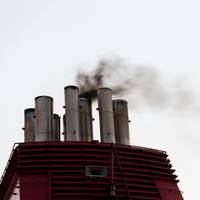
A who’s who list of maritime industry executives have signed on to voice their support for a zero-carbon future in shipping.The not-for-profit foundation the Global Maritime Forum brought together a group of 34 CEOs and industry leaders from across the global maritime sector to sign a call for action and lead the industry in a transition toward decarbonization.To achieve this, these leaders believe the maritime industry needs to accelerate both technological and business model innovation…
IMO Calls for Govts Support for 50 % Co2 cut by 2050
The ICS Chairman was commenting on the ambitious IMO strategy to cut the total greenhouse gas emissions of shipping by at least 50% by 2050, compared to 2008 – with an agreed efficiency goal, as an average for the sector, for a 40% improvement by 2030 compared to 2008, and a 70% improvement by 2050 – so that the entire sector will be in a position to decarbonise completely, consistent with achieving the 1.5 degree climate change goal identified by the UN. “It’s important that governments recognise the enormity of what has been agreed by IMO. While the ultimate goal is zero emissions, a 50% total cut by 2050 is very ambitious indeed, especially when account is taken of current projections for trade growth” said Mr Poulsson.
Maritime UK Mulls Increased Commonwealth Trade
Alderman The Lord Mountevans, Maritime UK Vice Chair, called for increased trade between UK and Commonwealth countries at the Commonwealth Head of Governments Meeting (CHOGM). Maritime UK brings together the UK’s shipping, ports, services, engineering and leisure marine industries to promote the sector, influence government and drive growth. Lord Mountevans, who addressed the Commonwealth Business Forum, said: “Today the Commonwealth is a modern and dynamic network of peoples. Half of the top 20 emerging global cities are in the Commonwealth and the family of nations is home to one third of the world’s population. The Commonwealth, therefore, is a network with huge potential. “Never has there been a greater focus on trade.
Industry Task Force Pushes for Decarbonization Urgency
Global Maritime Forum, Carbon War Room, the Carbon Pricing Leadership Coalition (CPLC), and University College London (UCL) has announced the launch of a Task Force on Decarbonizing Shipping. This industry-led initiative will develop tangible pathways for shipping’s decarbonization through five working groups, each focussed on a key area of the industry. Outcomes of the task force will be presented at the Global Maritime Forum’s inaugural summit in October 2018. The Task Force on Decarbonizing Shipping will bring together leaders and experts from across the maritime industry to develop and mobilize the industry along tangible pathways aligned with ambitious, science-based emission reduction targets.
Technology Cooperation for Low-Carbon Shipping
The Global MTTC Network (GMN) maritime technology project, run by International Maritime Organization (IMO) and funded by the European Union, was presented during a side-event (10 November) at the UN climate change conference in Bonn, Germany (COP 23). The project established a network of five regional Maritime Technology Cooperation Centres (MTCCs). Representatives of the European Union, IMO, MTCC-Caribbean and MTCC-Pacific participated at the event. MTCCs updated the audience on their pilot projects, including data collection on fuel oil consumption on ships. From 2019, ships over 5,000 gross tonnage worldwide – which account for 85% of CO2 emissions from international shipping - will be required to collect consumption data for each type of fuel oil they use…
IMO Rolls Out Global Maritime Technology Cooperation Centre Network
A global network of centres of excellence in marine technology was officially launched on Monday (4 December) at the headquarters of the International Maritime Organization (IMO). The Directors of five regional Maritime Technology Cooperation Centres (MTCCs) signed a Memorandum of Understanding to establish the global maritime technology centre network. The network of MTCCS - in Africa, Asia, the Caribbean, Latin America and the Pacific - is the mainstay of the GMN maritime technology project, run by IMO and funded by the European Union. The MTCCs are expected to provide leadership in promoting ship energy-efficiency technologies and operations, and the reduction of harmful emissions from ships.
Africa Maritime Cooperation Centre Launched
Africa has launched its maritime technology cooperation centre as part of an ambitious International Maritime Organization (IMO)-EU project to establish a global network of centres to further global efforts in addressing climate change. The centres will act as regional focal points for a wide range of activities including improving compliance with existing and future international energy-efficiency regulations; promoting uptake of low-carbon technologies and operations in maritime transport, and establishing voluntary pilot data-collection and reporting systems to feed back into the global regulatory process. In doing so, they will play their part in supporting the United Nations Sustainable Development Goals (SDGs).
Latin America Maritime Technology Cooperation Centre Lanched
The Latin America Maritime Technology Cooperation Centre, part of a global network established under an ambitious International Maritime Organization (IMO)-European Union (EU) project to further efforts to combat climate change, has been launched in Panama (13 March). The centre, hosted by the Universidad Marítima Internacional de Panamá (UMIP), is one of five such centres established under the GMN project, which is funded by the EU and run by IMO. The centres, in Africa, Asia, the Caribbean, Latin America and the Pacific regions, act as regional focal points for a wide range of activities. These include, improving compliance with existing and future international energy-efficiency regulations…









